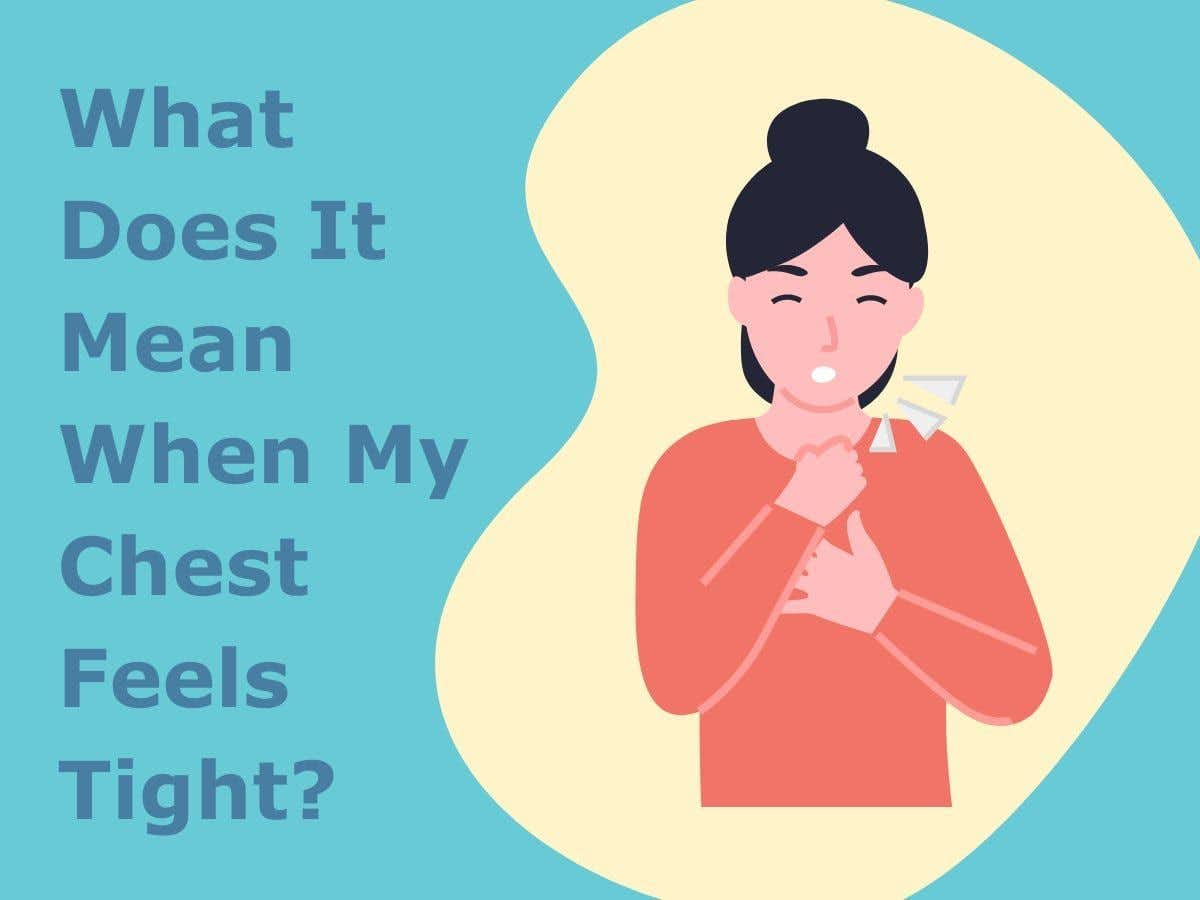September 20th, 2018

Does your chest feel tight and heavy and you’re not sure why? Does your chest feel tight only at certain times of the day and not others? Are you concerned about whether it's a medical problem? Having chest pains can be a concerning experience but it does not mean it's a serious medical problem.
Most people experiencing chest pain assume they are having a heart attack. Many times after ruling out any medical explanations, if your chest feels tight, it may be related to anxiety or high levels of stress. Chest tightness is a symptom of anxiety along with others that may occur simultaneously.
The chest tightness can be located in one or a few spots in the chest area, or move all over the chest area. If you experience chest tightness it varies by the person how often it occurs. It could occur persistently, rarely, or frequently. Chest pain can feel sharp, dull, stabbing, piercing tightness or pain, and/or as persistent tightness, pressure, fullness, or numbness.
Sometimes chest tightness occurs on its own and other times it may follow or accompany episodes of anxiety, high stress, or fear. Occasionally, anxiety culminates into a panic attack, which can last for 10 to 20 minutes.
Some medical causes for chest tightness can stem from a muscle strain, asthma, ulcers, rib fracture, pulmonary hypertension, and gastroesophageal reflux disease.
Aside from a medical reason, chest tightness can be caused by an active stress response, also known as the “flight or fight” response. When the body has a stress response there are changes that occur within the body in order to protect itself when in danger, which is what the body thinks is happening. The change that causes the feeling of chest tightness is the muscles of the body contracting and tightening. Again, this is done to protect the body from harm. The more anxious you are, the tighter the muscles get.
Due to the combination of ways that chest pains can be experienced, most people assume they are having a heart attack. Unfortunately, if they are not having a heart attack but believe they are, it only causes them to panic more. The more they panic, the tighter the muscles get.
Digestive and stomach symptoms are also common for those who struggle with stress and anxiety. These digestive and stomach symptoms can mirror chest tightness, pressure, and pain.

It is important to note that discovering whether the chest tightness is related to a serious health condition or anxiety is the first step. If your symptoms are similar to more serious conditions, see a doctor immediately. If your chest tightness is linked to high levels of stress and anxiety then luckily the pain will subside as your body fully recovers from being in a high-stress response. The only thing to do in these situations is to find the best way to calm yourself down.
If you are someone that struggles with anxiety on a consistent basis or has a diagnosed Anxiety Disorder, it is important that you become familiar with coping skills that work for you. Some coping skills to use in high-stress response situations in which chest tightness is a result are slow deep breathing, or grounding techniques.
In general, it is important to discover and implement daily activities in your life that keep you rested and relaxed. This can include journal writing, meditation, physical exercise, or mindfulness exercises. Either way, learning to decrease your anxiety on a regular basis can decrease and prevent the experience of high-stress responses or panic attacks. This will hopefully eliminate your experience of chest tightness altogether and possibly other symptoms of anxiety you may be struggling with.
At Clarity Clinic, we have highly trained staff who specialize in psychotherapy and psychiatry services. To learn more about how we can support your mental health, call Clarity Clinic on (312) 815-9660 or schedule an appointment today.
Our Services
Virtual/Online CarePHP and IOPAdult PsychiatryChild & Adolescent PsychiatryAdult TherapyChild & Adolescent TherapyCouples CounselingFamily TherapyGroup TherapyPsychological TestingTranscranial Magnetic Stimulation (TMS)